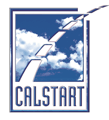EnergIIZE to Award $29.7 Million in Hydrogen Infrastructure
Incentives to Applicants in Second Year of Funding
The funding lane will run for two weeks beginning on April 27, 2023, at 9 a.m. Pacific Time.
Pasadena, CA: The second round of the California Energy Commission’s (CEC’s) Energy Infrastructure Incentives for Zero-Emission Commercial Vehicles (EnergIIZE) Hydrogen funding lane will open for two weeks, beginning at 9 a.m. Pacific Time on April 27, 2023, and lasting through 5 p.m. Pacific Time on May 12, 2023. This funding lane follows the Electric Vehicle (EV) Fast Track funding lane application window, which awarded $10.4 million in incentives to applicants within minutes and is now fully subscribed.
The Hydrogen funding lane offers the highest incentive funding cap of all four EnergIIZE funding lanes, covering 50 percent of eligible equipment and software costs for standard projects, up to $3 million per project. If the applicant also meets the Jump Start equity criteria, then 75 percent of eligible equipment and software costs are covered, with the maximum amount rising to $4 million per project. Eligible equipment and software covered for funding includes compressors, liquid and gaseous pumps, piping and pipelines, high-pressure storage, chillers, meters, switchgears, and electrical panel upgrades.
To be eligible for funding, applicants must show proof that their projects are intended for medium- or heavy-duty hydrogen fuel-cell vehicles, that refueling stations are capable of dispensing 350 or 700 bar, and that they meet ASME, ASTM, and NFPA standards. Applicants will be able to submit applications with supporting documents through an Incentive Processing Center at the opening of the application window. A Sandbox test application portal is available until April 21, 2023, to help prospective applicants familiarize themselves with the application process.
The Hydrogen funding lane’s initial round of incentives opened last year, running for two weeks from late June 2022 through early July 2022. The incentive amount was $17 million and was fully subscribed during the application period. The upcoming funding lane represents a 74.7 percent increase in available funding for hydrogen projects.
“We are thrilled to open this funding lane once again to California applicants to help support the installation of hydrogen refueling infrastructure. We hope the increase in funding will attract more commercial fleets and help further increase the market acceleration of zero emission vehicles,” said Amy Gower, Deputy Director, EnergIIZE.
The EnergIIZE Commercial Vehicles Project is funded by the California Energy Commission and implemented by CALSTART and partner Tetra Tech. EnergIIZE, with a total authorized allocation of $276 million through 2026, provides incentives to purchase infrastructure equipment for medium-duty/heavy-duty (MD/HD) zero-emission vehicles operated and domiciled in California. Through these incentives, EnergIIZE helps achieve the target set in Governor Newsom’s Executive Order N-79-20 for all MD/HD fleets statewide to transition to ZEVs by as early as 2035.
For more information on the four funding lanes from EnergIIZE, see the EnergIIZE website or contact [email protected].
About CALSTART
A nonprofit consortium with offices in New York, Michigan, Colorado, California and central Europe and partners world-wide, CALSTART works with 300+ member company and agency innovators to build a prosperous, efficient, and clean high-tech transportation industry. We overcome barriers to modernization and the adoption of clean vehicles. CALSTART is changing transportation for good.
About EnergIIZE
EnergIIZE Commercial Vehicles is a CEC block grant project that provides infrastructure incentives for public and private fleets, owner/operators, school bus fleets, transit agencies, and public charging sites that plan to deploy battery electric or hydrogen fuel cell vehicle technology.
About the California Energy Commission
The California Energy Commission is leading the state to a 100 percent clean energy future for all. As the state’s primary energy policy and planning agency, the Energy Commission is committed to reducing energy costs and environmental impacts of energy use while ensuring a safe, resilient, and reliable supply of energy.
